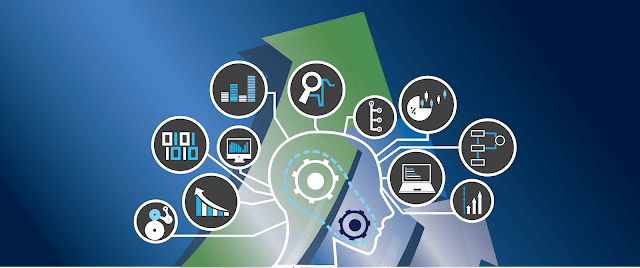Integrating Big Data with ERP: What the Future Has In Store for Us?
The other day I was following a discussion in a tech forum when I came across this question: what does Big Data have in store for ERP? Or how is Big Data good for ERP? Big Data, which is on everyone’s mind right now, has also seen acceptance by major players in the fray. SAP, for instance, has already started offering HANA to analyze live data to support businesses real-time. It processes transactions and analytics, simultaneously, on any data type. Oracle is also using StubHub (Customer and Partner Search tool) to handle Big Data.
ERP systems, a product of the last decade were devised to streamline business processes. Small and medium organizations benefitted largely from low-cost but effective ERP tools customized to their needs. Larger organizations, found a better way of automating business processes, with improved results and lower cost.
However, today ERP systems are finding it difficult to store the high volumes of data, coming from different sources and in varying forms. ERP systems are exposed to Big Data (big in volume, big in variety (structured; semi-structured; unstructured), and big in the speed of change) wherein the combined analysis of larger amounts of structured and unstructured data from disparate systems takes place in a short amount of time.
Today, the most consumers use mobiles and other gadgets to perform official and personal tasks. Data (which varies in form and source) is shared over emails, Social Media, and the internet of things. Quite often it has been observed that ERP systems are unable to assess online consumer behaviour or make out the difference between significant and insignificant information shared. Also, the large volume of data exchanged exceeds the storage of data in ERP systems and this, in turn, affects data processing capacity.
Now, the question is, how Big Data is helping ERP system for optimized business results?
According to a 2016 Information Week report, only 12% of collected data is analyzed by companies, missing out on major potential business insights in the data. Here, we discuss some of the benefits of integrating ERP platforms with Big Data:
Faster Information Exchange:
Big Data systems like Apache’s Hadoop are creating node-level operating transparencies that will allow enterprise managers to quickly leverage ERP Big Data capabilities, thereby enhancing information density and speeding up overall decision-making.
Better Scheduling
Big Data ensures that information is processed better and more readily available. Comprehensive ERP scheduling through Big Data allows you to get data from multiple mobile-enterprise field service units, remote manufacturing outlets, in parallel with the main plant, or even individual machine-station scheduling in accurate form and real-time.
More Precise Forecasting
ERP Big Data integrations offer a host of easily leveraged opportunities to resolve the need for ‘more data all the time,’ ultimately leading to overall forecast accuracy. You get a better predictive analysis on your sales figures before you can even lay your hands upon them.
Know your Customers Better
Big Data and ERP systems can be integrated to observe consumer behaviour in social sites, sensor networks, and mobility. It would also allow online retailers to understand customer preferences better, and alter their positioning strategies accordingly. The legacy systems are incapable of handling the huge amount of data exchanged in the social media platforms through chatbots or live messengers.
While most people are busy talking about using Big Data, as a product or tool, very few have recognized the need for integration. Also, organizations need to focus on the predictive capabilities of ERP systems, to analyze current data and historical facts in order to identify potential risks and opportunities for any organization.
ERP systems should be integrated with Big Data for the technologically more advanced platform and better and wider in-scope best practices. The impact of integration on the organization will be profound as they will be able to have a faster and higher quality implementation.


No comments:
Post a Comment
Thank you for your Comments.
ExpandERP Team